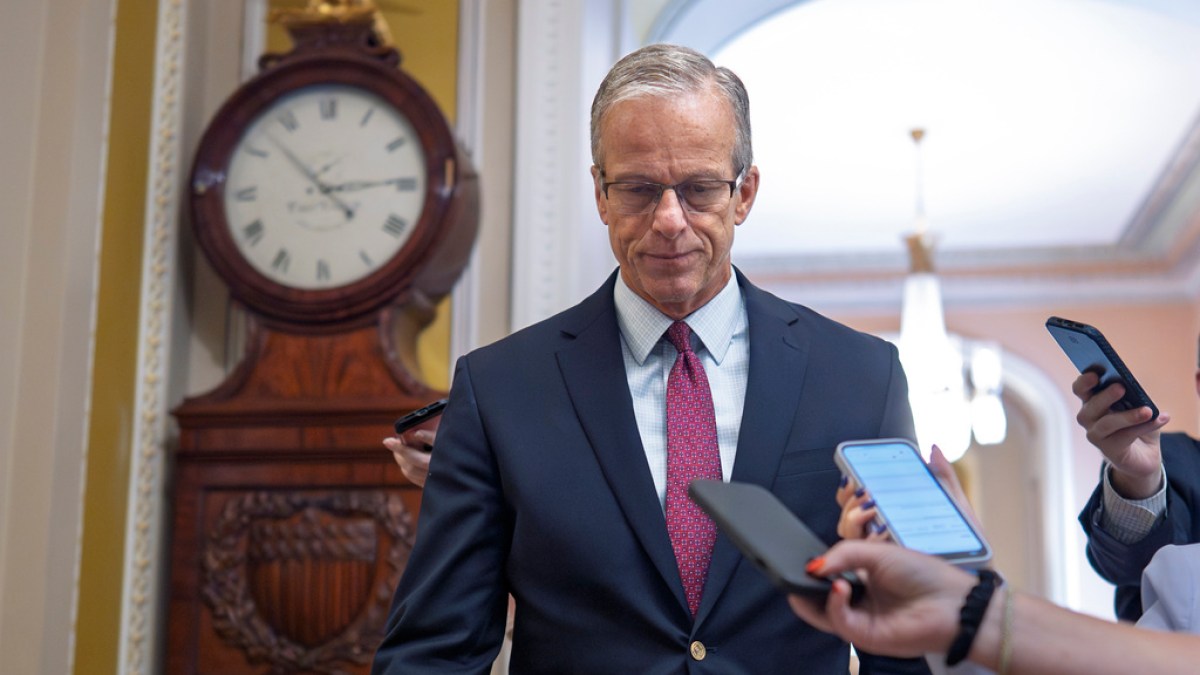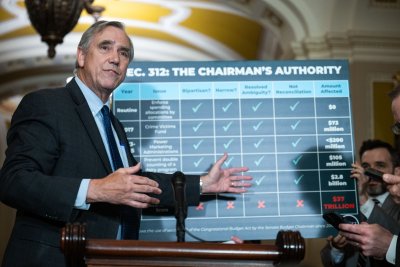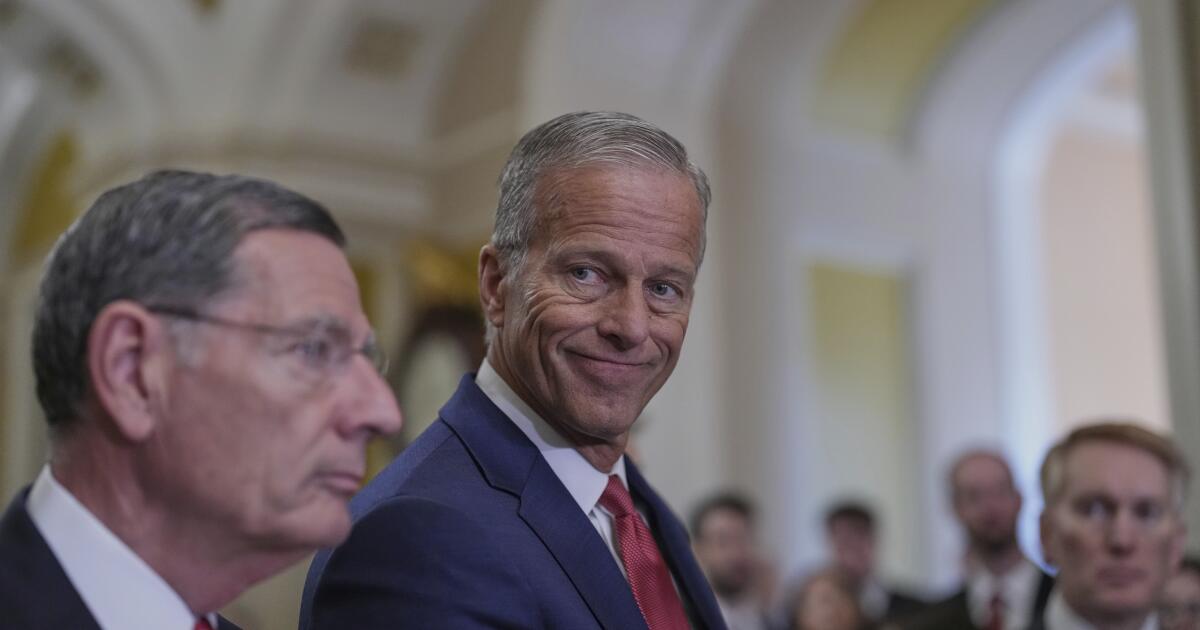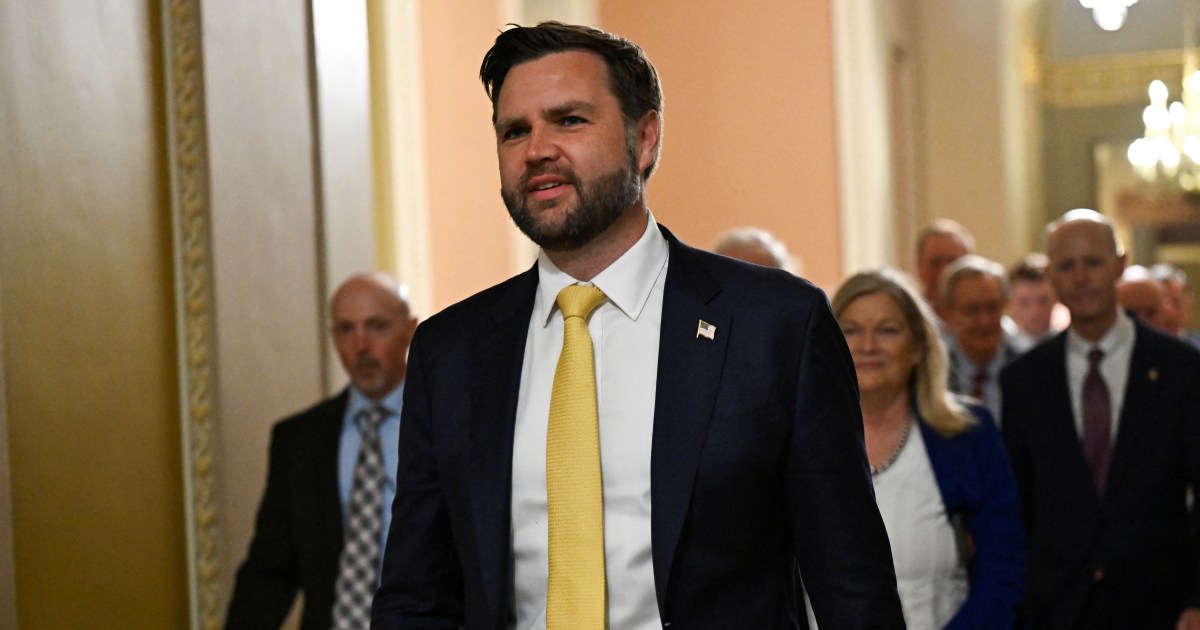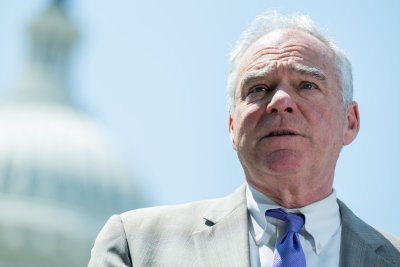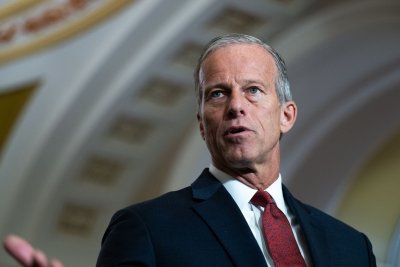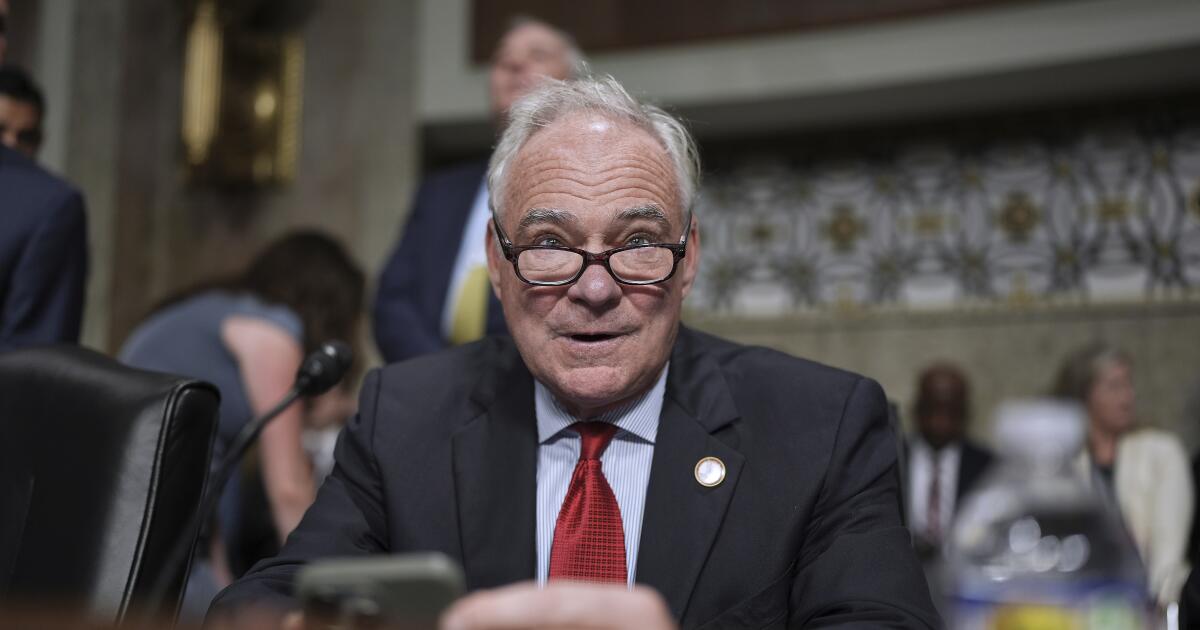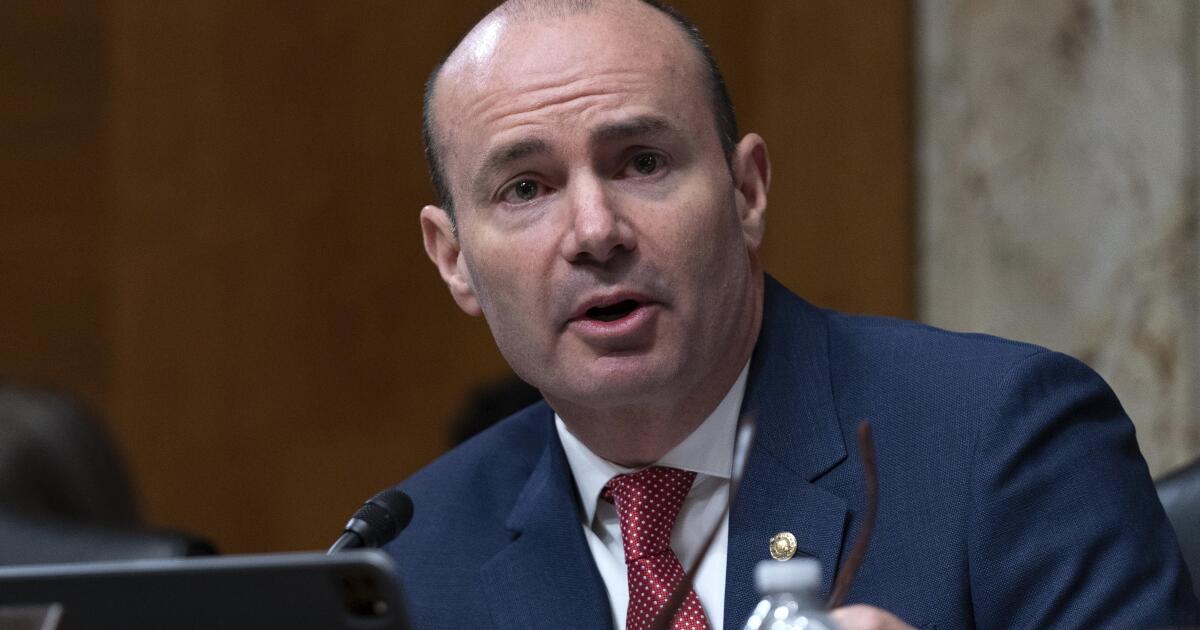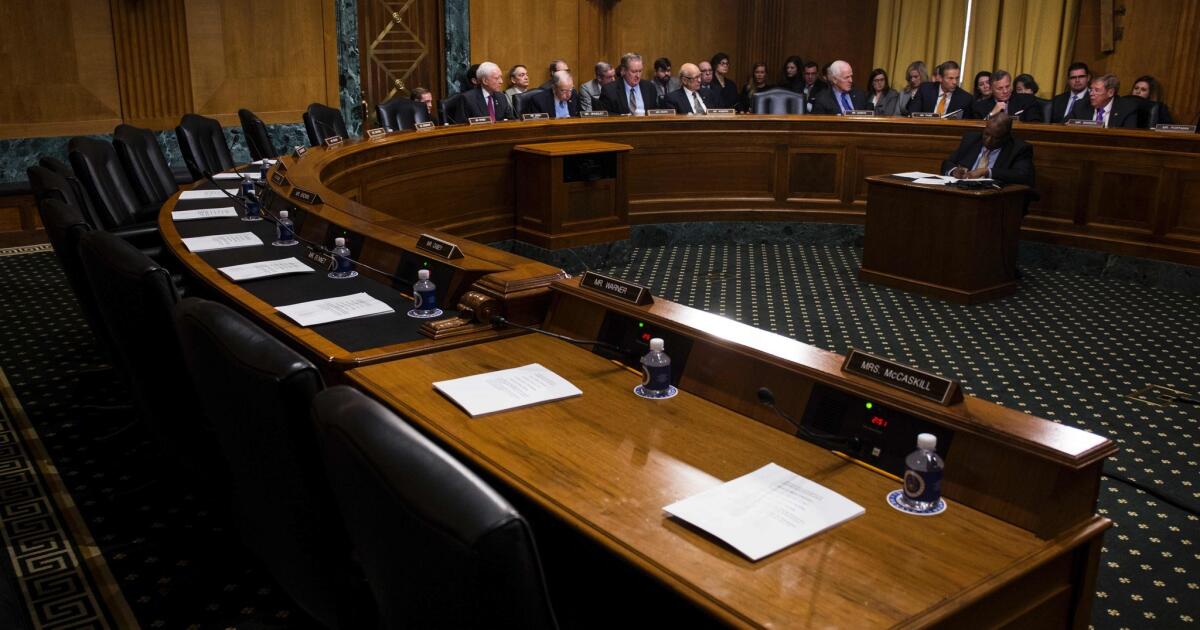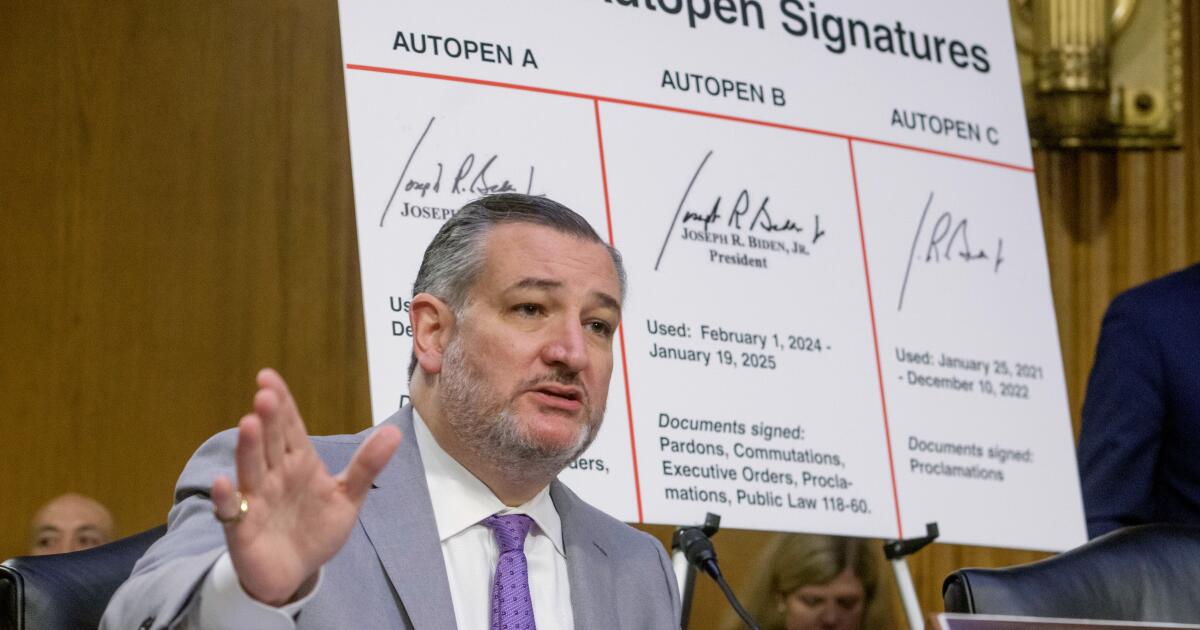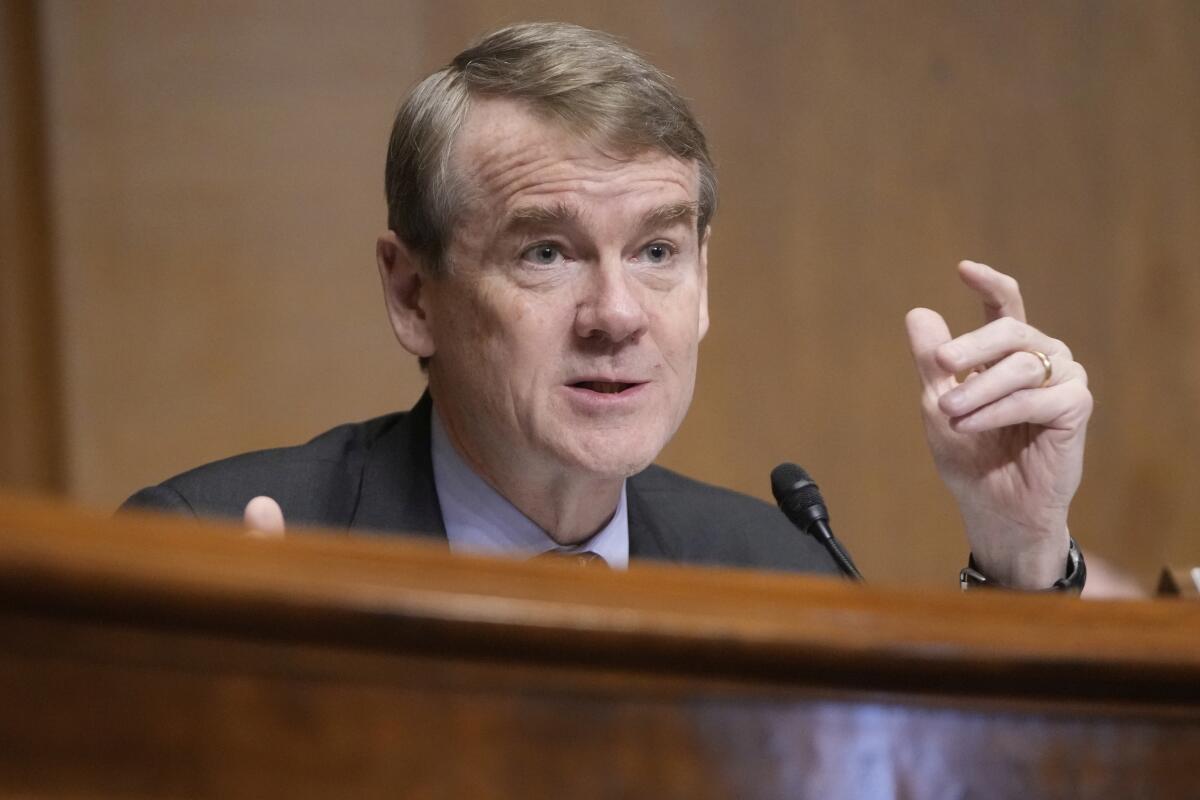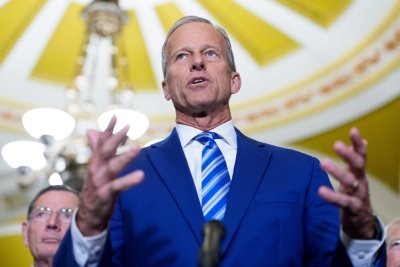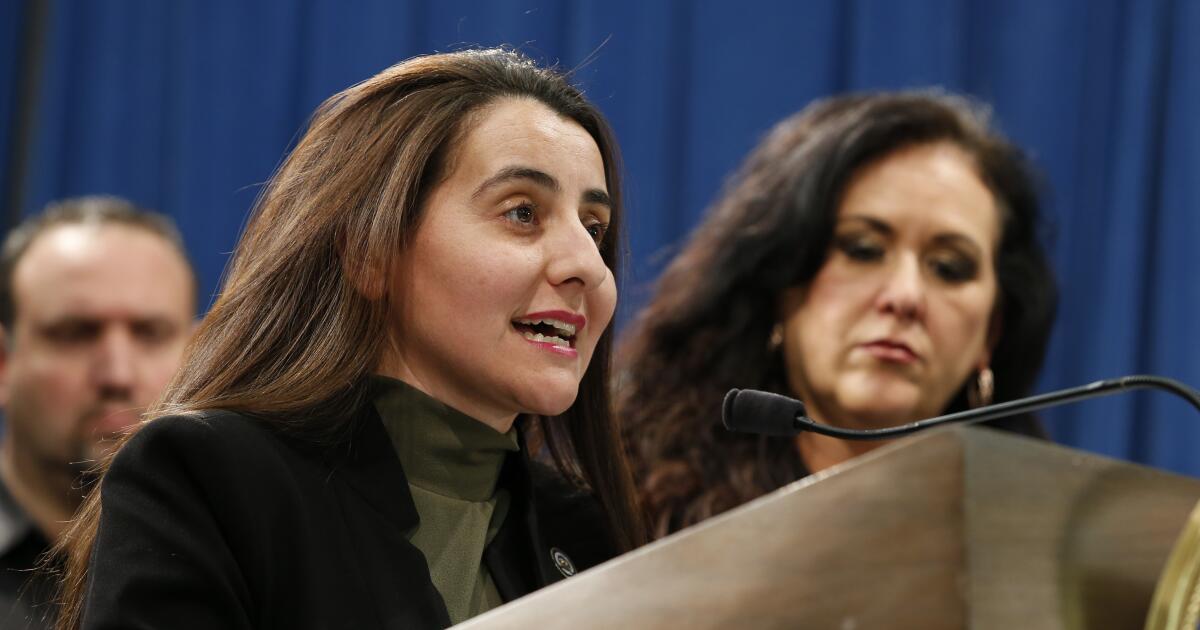US Senate begins debate on Trump’s ‘Big, Beautiful Bill’ | Donald Trump News
The United States Senate has begun debating President Donald Trump’s 940-page “Big, Beautiful Bill” of tax breaks and sweeping cuts to healthcare and food programmes.
The all-night session on Sunday came as the nonpartisan Congressional Budget Office (CBO) said the bill would add an estimated $3.3 trillion to the US debt over a decade.
It also said that 11.8 million more Americans would become uninsured by 2034 if the bill became law.
Republican leaders, who reject the CBO’s estimates, are rushing to meet Trump’s deadline of July 4, the country’s Independence Day.
But they barely secured enough support to muscle the bill past a procedural vote on Saturday night. A handful of Republican holdouts revolted, and it took phone calls from Trump and a visit from Vice President JD Vance to keep the legislation on track.
Republican Senator Thom Tillis of North Carolina, who voted against the bill on Saturday, announced he would not seek re-election after Trump threatened to back a primary challenger in retribution for his “no” vote.
Tillis said he could not vote for the bill with its steep cuts to Medicaid, which provides health cover for low-income people.
Trump welcomed Tillis’s decision not to run again, saying in a post on TruthSocial: “Great News! ‘Senator’ Thom Tillis will not be seeking reelection.”
Other Senate Republicans, along with conservatives in the House of Representatives, are pushing for steeper cuts, particularly to healthcare, drawing their own unexpected warning from Trump.
The US president addressed “all cost cutting Republicans,” and said: “REMEMBER, you still have to get reelected. Don’t go too crazy! We will make it all up, times 10, with GROWTH, more than ever before.”
‘Most dangerous piece of legislation’
All told, the Senate bill includes some $4 trillion in tax cuts, making permanent Trump’s 2017 rates, which would expire at the end of the year if Congress fails to act, while adding the new ones he campaigned on, including no taxes on tips.
The Senate package would roll back billions in green energy tax credits that Democrats warn will wipe out wind and solar investments nationwide, and impose $1.2 trillion in cuts, largely to Medicaid and food stamps, by imposing work requirements and making sign-up eligibility more stringent.
Additionally, the bill would provide a $350bn infusion for border and national security, including for deportations, some of it paid for with new fees charged to immigrants.
Democratic Senators, who are all opposed to the bill, continued efforts to delay its passage, after earlier requesting the entirety of the draft legislation be read on the Senate floor – a process that took some 16 hours.
Minority Senate leader Chuck Schumer said Republicans were trying to rush through the extensive bill before Americans knew what was in it, and said Democrats would continue to “shine a light” on the bill in the coming days.
“Some Republicans are trying to rush through a bill that they released less than two days ago under the cloak of darkness, written behind closed doors,” he said.
The latest version of the bill, Schumer added, includes changes such as “even worse” cuts to clean energy, which would see Americans pay 10 percent more on electricity bills and “kill 900,000 good paying jobs in clean energy”.
Independent Senator Bernie Sanders called it “the most dangerous piece of legislation in the modern history of our country”.
“We don’t have enough money to feed hungry children. We don’t have enough money to make sure that people continue to have the health care that they need,” he said. “But somehow, the military industrial complex is going to get another $150bn, 15 percent increase.”
He added that Tillis’s decision not to seek re-election shows the hold that Trump’s cult of personality has over the Republican Party.
Trump’s “Big, Beautiful Bill” is a gift to the billionaire class while causing massive pain for working families. It is the most dangerous piece of legislation in the modern history of our country.
I’m LIVE on the floor to oppose this disastrous bill. https://t.co/flAfpXmEzM
— Bernie Sanders (@SenSanders) June 29, 2025
Lengthy process ahead
The legislation has been the sole focus of this weekend’s marathon congressional session. After the debate concludes, the Senate will enter an amendment session, known as a “vote-a-rama,” before voting on passage.
Lawmakers said they hoped to complete work on the bill on Monday.
If the Senate can pass the bill, it would need to return to the House.
Speaker Mike Johnson has told legislators there to be on call for a return to Washington, DC, this week.
Al Jazeera’s Mike Hanna, reporting from Washington, DC, said the bill faces a “lengthy process” with “a lot of discussion, debate lying ahead”.
“Trump and his followers insist that it’s going to meet a lot of the promises he made during his campaign,” he said.
“Democrats point out that the massive tax relief is aimed at very wealthy individuals as well as corporations. They also argue very strongly that all of these tax cuts for the wealthy are being funded largely by massive cuts to social welfare programmes like Medicare, like food stamps,” he said.
“The other way it’s going to impact Americans is where the money is going as well. It’s a massive increase in funding for the military. It’s a massive increase in funding for those forces fighting against immigration.”
According to the American Immigration Council, the bill includes as much as “$45 billion for building new immigration detention centres, including family detention facilities”. This comes as the “Alligator Alcatraz” detention centre in the Florida Everglades is expected to open on Tuesday this week, as the Trump administration continues to call for 3,000 daily immigration arrests.
Despite the opposition, Republicans appear undeterred.
“We are going to make sure hardworking people can keep more of their money,” Senator Katie Britt, an Alabama Republican, told CNN’s State of the Union on Sunday.
Senator Lindsey Graham, who heads the Budget Committee, promised to do everything he can to get the bill to Trump’s desk.
“We’re going to pass the ‘Big, beautiful bill,” he said.
